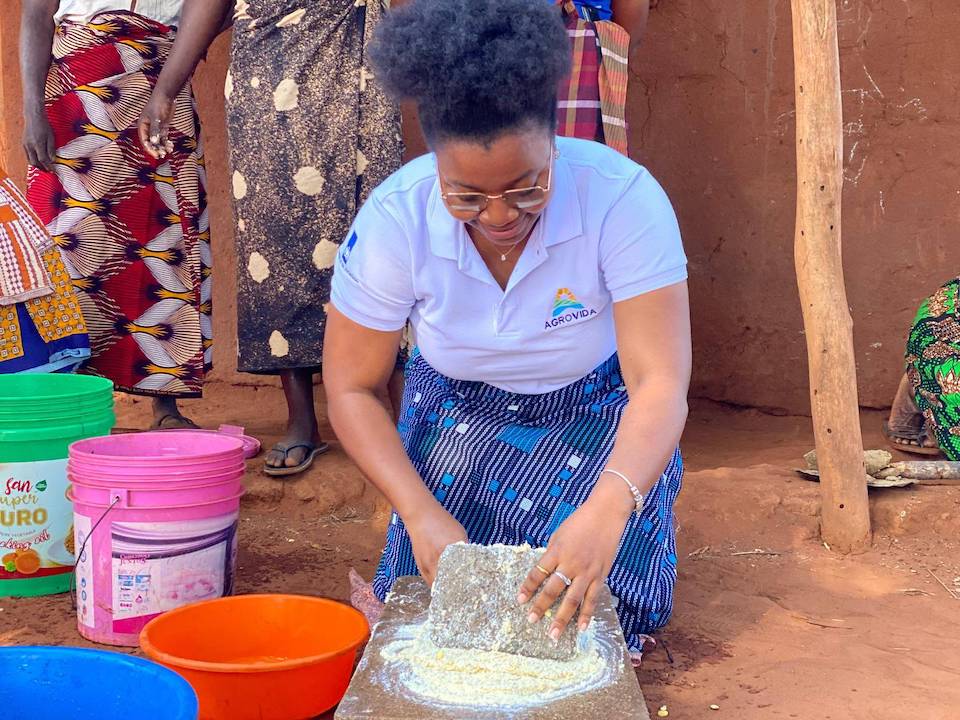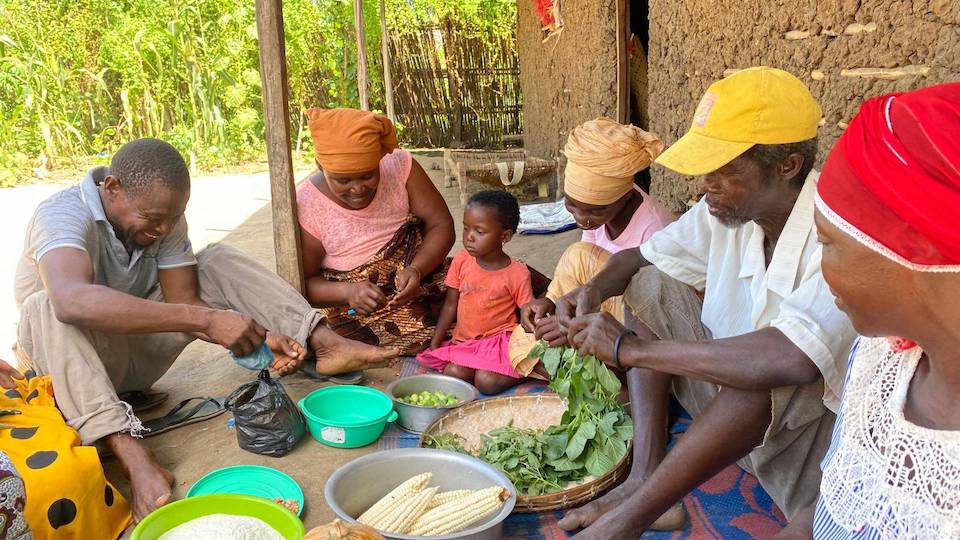The Agrovida project is strengthening the resilience and food security of rural families in Cabo Delgado by placing nutrition at the heart of its interventions. In a context marked by food insecurity and limited dietary diversity, Agrovida promotes sustainable changes in eating habits by valuing local foods, encouraging dietary diversification, and offering practical, context-adapted nutrition education.

This initiative is funded by the Embassy of the Kingdom of the Netherlands and the French Development Agency, and it is implemented by a consortium led by the Aga Khan Foundation. The consortium includes organizations such as ADPP Mozambique, SmartFarming, GAPI, Associação H2N, and Thirdway Partners.
The project’s goals include increasing the adoption of regenerative agricultural practices and/or sustainable fishing practices, strengthening small-scale commercial farms and agribusinesses, with a special focus on promoting youth and women’s entrepreneurship. It also aims to ensure that families adopt good nutritional practices—from food production to consumption—and contribute to a favorable environment for the development of resilient and sustainable local food systems. The nutrition component is led by ADPP Mozambique, focusing on promoting behavioral change in dietary habits and strengthening community-level nutritional security.

Through activities such as community talks, debates, and theatre, the project raises awareness about the importance of a balanced diet. Cooking demonstrations using local ingredients like moringa, soy, sesame, and fish provide practical guidance on how to prepare healthy and nutritious meals using locally available resources. Simultaneously, the project encourages the establishment of household gardens with nutritious crops and teaches simple food preservation and processing techniques to ensure year-round food availability.
Agrovida’s integrated “From Farm to Plate” approach ensures that the food grown or fished by families reaches the table safely and healthily. This approach includes diversified production, post-harvest processing, food education, and ongoing monitoring of dietary intake. With the support of digital tools, the project assesses household dietary diversity and guides specific interventions to promote long-term healthy eating habits.
To date, more than 2,500 families have participated in sessions on best nutritional practices, over 1,100 people have taken part in cooking demonstrations, 100 household gardens have been established, 120 knowledge replication sessions have been facilitated by nutrition committees, and more than 110 committees have been formed—with 60 percent female participation. A community-based nutrition monitoring system has also been established, strengthening local capacity to continuously track and improve the nutritional status of families.
Working in close collaboration with district authorities, community leaders, and partner organizations, Agrovida ensures that its actions have a real and sustainable impact, significantly contributing to the well-being of communities in Cabo Delgado.

